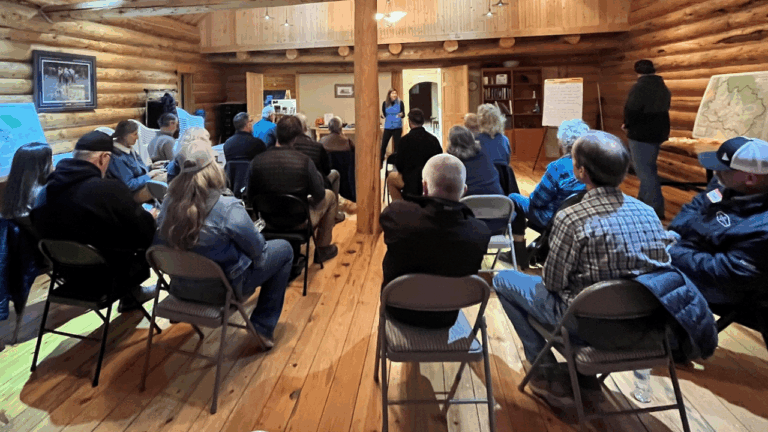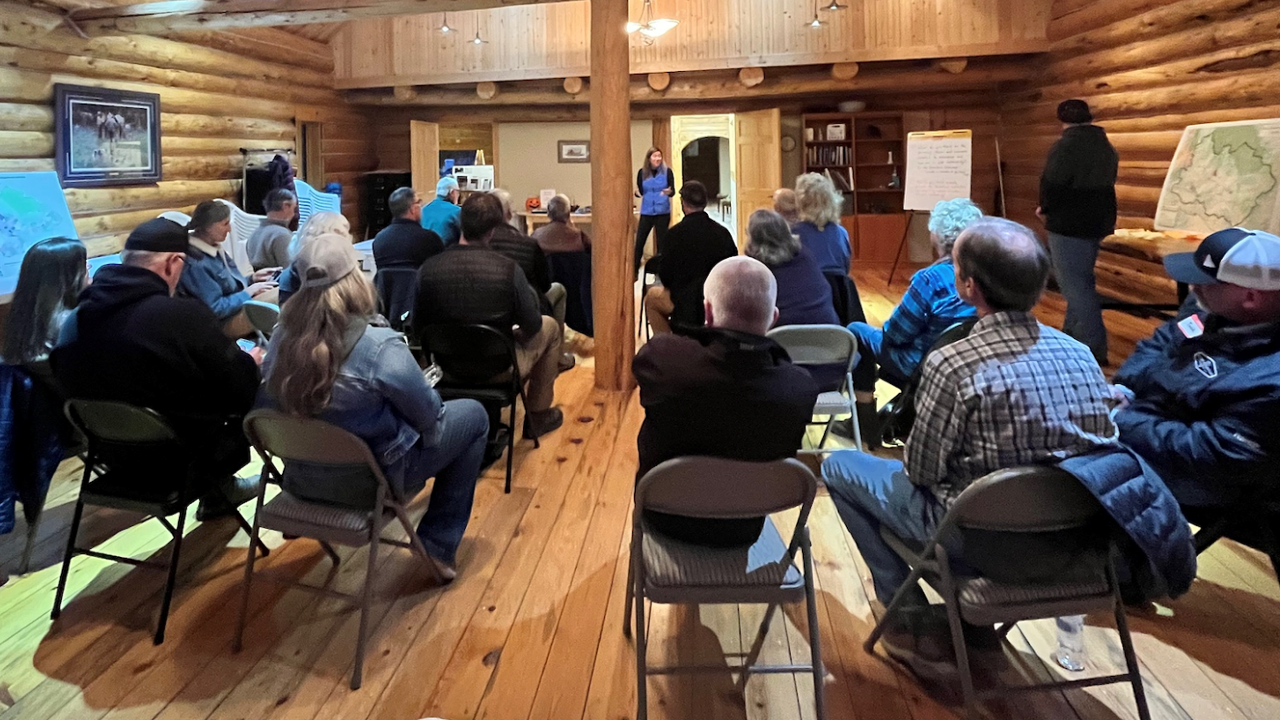
by Jennifer Schoonen, Blackfoot Challenge Communications Director
In the fall of 2024, the Blackfoot Challenge organized a community feedback process to gather concerns and ideas from community members and stakeholders about the impacts of increasing recreation use in the watershed. Ultimately, the goal of this process is to develop a shared vision and priorities on how collaborative planning can support more sustainable recreation and better stewardship practices among visitors.
The feedback process included six meetings facilitated by a team from the University of Montana Parks, Tourism and Recreation Management Program in communities around the watershed. Those meetings were followed by two more intensive meetings to take the feedback and develop shared goals and priorities, as well as an online survey for folks who could not attend any in-person meetings.
During the initial six meetings, attendees were asked to share what’s most important to them about Blackfoot resources and what issues concern them most. Community members valued the quality of their personal outdoor experiences, support for the local economies, and appreciation of the Blackfoot legacy of stewardship. When asked about their top concerns around recreation growth, attendees included issues of: impacts to fish and wildlife; behavior and etiquette of recreationists; impacts to the outdoor experience; infrastructure and enforcement issues; traffic; impacts on local communities and culture; problems associated with outfitter use; and tensions between various types of recreation.
During the next phase, two meetings focused on creating a shared vision, with key words like stewardship, sustainability, way of life, responsible use, biodiversity, and community vitality rising to the top of attendees’ priorities. Based on the collective input, the facilitation team drafted a proposed vision statement that will be integrated with a mission statement developed by members of the Recreation Committee.
In advising next steps for the Blackfoot Recreation Committee and recreation partners, community members suggested activities focused on enforcement, education, infrastructure, recreation ambassadors, enhanced partner communication, and funding. Going forward, the Blackfoot Recreation Committee will develop more specific priorities and actions grounded in the community input received over the last several months. This will include ongoing meetings where the committee will dive deeper into learning from other recreation management models, develop and report out Blackfoot recreation use data that the Challenge will begin collecting this summer, and design new outreach materials to educate visiting recreationists.
If you have questions about the Blackfoot Recreation Committee or would like to get involved, please contact Blackfoot Challenge Recreation Program Coordinator Marley Held-Wilson at marley@blackfootchallenge.org.
If you would like to view a recording of the full presentation on results from the community feedback process, you can find that here.
You can now read the final report on the Blackfoot recreation community meetings here.
